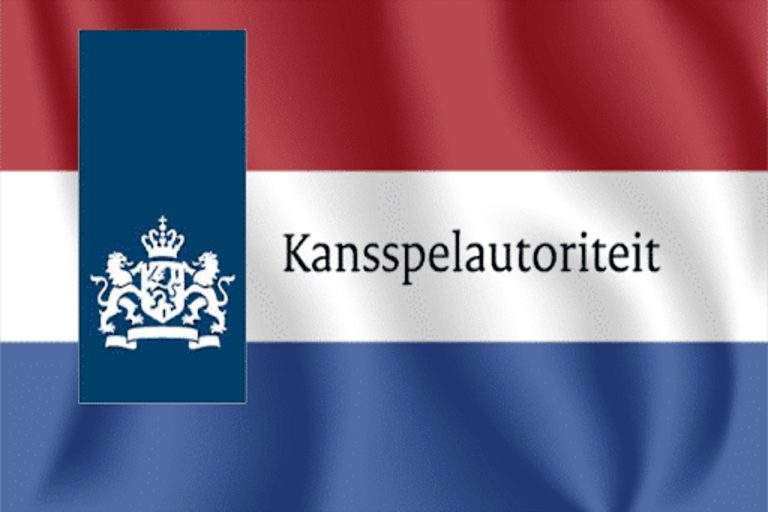Crackdown on Unlicensed Online Gambling

In recent legal judgments, Dutch courts have taken decisive action against unlicensed online gambling operators, signaling a shift towards stricter enforcement of regulatory requirements. This article explores the ramifications of these court rulings, examining the cases of Bwin and PokerStars, two prominent foreign gambling providers, and their obligation to reimburse significant financial losses incurred by Dutch gamblers. Furthermore, it delves into the broader regulatory landscape in the Netherlands and across Europe, highlighting the challenges posed by unlicensed online gambling and the escalating punitive measures being implemented to address them.
Unlicensed Operations and Legal Ramifications:
The recent rulings by Dutch courts have brought to light the repercussions of operating without proper licensing within the Netherlands. In the cases involving Bwin and PokerStars, individuals from Staphorst and Almelo suffered substantial financial losses amounting to hundreds of thousands of euros. These losses were incurred through interactions with gambling platforms that lacked authorization to operate within the Dutch jurisdiction. The courts have deemed the absence of operational licenses as grounds for nullifying contracts with Dutch customers, thereby compelling these platforms to fully refund the losses suffered by the affected individuals.
Historical Context and Regulatory Challenges:
The legal framework governing online gambling in the Netherlands has undergone significant evolution over the years. Until April 1, 2021, online gambling was not officially permitted, despite the evident presence of a thriving market. The Supreme Court had previously ruled on the illegality of international gambling companies operating within the country as early as 2012. However, enforcing these regulations has proven to be a formidable task, primarily due to the borderless nature of the internet, which enables global accessibility to online gambling platforms.
Regulatory Actions by Kansspelautoriteit (KSA):
In addition to judicial rulings, the Netherlands gambling authority, Kansspelautoriteit (KSA), has been actively cracking down on unlicensed gambling operators. Entities such as Casbit Group NV have faced substantial fines for violations, with penalties reaching up to €840,000 for accessibility issues to Dutch gamblers. The stringent enforcement measures adopted by the KSA reflect a concerted effort to uphold regulatory integrity and protect consumers from the risks associated with unauthorized online gambling.
Escalating Punitive Measures:
The fines imposed on gambling operators by regulatory authorities in the Netherlands have witnessed a significant escalation in recent years. In 2024 alone, Gammix Limited incurred an unprecedented fine of €19,679,000 for its unlicensed activities, surpassing the previous record penalty of €12,640,000 imposed on N1 Interactive Limited in 2022. This trend underscores the growing severity of consequences for non-compliance with regulatory requirements and serves as a deterrent to other operators engaging in similar practices.
European Regulatory Landscape:
The crackdown on unlicensed online gambling extends beyond the borders of the Netherlands, reflecting a broader European regulatory agenda. In Germany, recent legislative reforms have tightened regulations against gambling operators without local licenses, signaling a collective effort to curb the proliferation of unauthorized online gambling activities. The alignment of regulatory efforts across European countries underscores the importance of cross-border cooperation in addressing regulatory challenges in the digital gambling sector.
Systemic Failures and Societal Implications:
The legal proceedings and regulatory actions against unlicensed online gambling operators shed light on systemic failures within the industry. Lawyer Benzi Loonstein’s analogy between the gambling industry and illicit drug markets underscores the clandestine nature of unregulated activities and the potential societal harm they pose. This comparison underscores the urgent need for a fortified regulatory framework encompassing stringent oversight and enhanced punitive measures to mitigate the risks associated with unlicensed online gambling.
Ensuring Accountability and Compliance:
As Dutch courts and regulatory authorities continue to enforce the law, there is a growing recognition of the need for more robust measures to ensure accountability and compliance within the online gambling industry. Merely imposing fines on violators is deemed insufficient, necessitating a comprehensive approach that may include higher penalties and more frequent blacklisting of non-compliant websites. Such measures are crucial for deterring further legal violations and safeguarding consumers from the adverse effects of unregulated online gambling.
Future Outlook and Global Trends:
The evolving legal landscape in the online gambling sector is expected to witness further intensification of regulatory measures globally. This trend reflects a broader shift towards stricter control over digital gambling platforms, driven by concerns over consumer protection and regulatory integrity. As regulatory authorities continue to adapt to the challenges posed by unlicensed online gambling, the industry is likely to face greater scrutiny and accountability in the years to come.
Conclusion:
In conclusion, the recent court rulings and regulatory actions against unlicensed online gambling operators underscore the growing emphasis on compliance and accountability within the industry. From the Netherlands to Germany and beyond, regulatory authorities are ramping up efforts to curb the spread of unauthorized online gambling activities and protect consumers from associated risks. As the legal landscape continues to evolve, stakeholders in the online gambling industry must remain vigilant and adapt to the changing regulatory environment to ensure long-term sustainability and consumer welfare.
FAQs:
What are the recent judgments by Dutch courts regarding unlicensed online gambling?
Recent judgments by Dutch courts have mandated prominent foreign gambling providers, such as Bwin and PokerStars, to reimburse substantial financial losses incurred by Dutch gamblers. These rulings stem from the operators’ unlicensed operation within the Netherlands, highlighting a breach of local regulatory requirements.
How have Bwin and PokerStars been affected by the court rulings in the Netherlands?
Bwin and PokerStars have been directed by Dutch courts to fully reimburse the financial losses suffered by Dutch gamblers due to their unlicensed operations. These court decisions underscore the lack of operational licenses as grounds for nullifying contracts with Dutch customers, placing financial obligations on the gambling platforms.
What is the role of the Kansspelautoriteit (KSA) in regulating online gambling in the Netherlands?
The Kansspelautoriteit (KSA) is the Netherlands gambling authority responsible for regulating and overseeing the online gambling industry. It plays a vital role in enforcing regulatory compliance, imposing fines, and ensuring consumer protection within the Dutch gambling market.
What are the historical challenges associated with enforcing online gambling regulations in the Netherlands?
Historically, enforcing online gambling regulations in the Netherlands has been challenging due to the absence of official authorization for online gambling until April 1, 2021. Despite the illegality of international gambling companies operating within the country, the borderless nature of the internet has facilitated their accessibility, complicating enforcement efforts.
How have fines imposed on unlicensed gambling operators escalated in recent years?
Fines imposed on unlicensed gambling operators in the Netherlands have witnessed a significant escalation in recent years. For instance, in 2024, Gammix Limited faced an unprecedented fine of €19,679,000 for its unlicensed activities, marking a substantial increase from previous penalties. This escalation reflects a heightened regulatory stance aimed at deterring non-compliance.
What regulatory reforms have been implemented in Germany to address unlicensed online gambling?
In Germany, recent legislative reforms have tightened regulations against gambling operators without local licenses. These reforms signify a concerted effort to curb the proliferation of unauthorized online gambling activities and ensure regulatory compliance within the German gambling market.
How do the legal proceedings against unlicensed online gambling operators reflect systemic failures within the industry?
Legal proceedings against unlicensed online gambling operators highlight systemic failures within the industry, including a lack of adherence to established laws and regulations. The comparison drawn between the gambling industry and illicit drug markets underscores the clandestine nature and potential societal harm posed by unregulated activities, emphasizing the need for a fortified regulatory framework.
What measures are being proposed to enhance regulatory oversight of the online gambling industry?
To enhance regulatory oversight of the online gambling industry, measures such as higher penalties and more frequent blacklisting of non-compliant websites are being proposed. These measures aim to deter further legal violations, protect consumers from associated risks, and ensure compliance with evolving regulatory requirements.
What is the future outlook for regulatory measures in the global online gambling sector?
The future outlook for regulatory measures in the global online gambling sector suggests a trend towards stricter control and increased regulatory scrutiny. As regulatory authorities adapt to the challenges posed by unlicensed online gambling, stakeholders in the industry can expect continued efforts to uphold regulatory integrity and consumer protection.
How can stakeholders in the online gambling industry ensure compliance with evolving regulatory requirements?
Stakeholders in the online gambling industry can ensure compliance with evolving regulatory requirements by proactively monitoring and adapting to changes in the regulatory landscape. This may involve implementing robust compliance measures, staying informed about regulatory developments, and actively engaging with regulatory authorities to address any concerns or issues.
Recommended Posts

SOFTSWISS Jackpot Aggregator Q1 2024 Results
May 1, 2024

Swintt Expand Reach with Casino 777
May 1, 2024

Your Guide Through iGaming Licensing
April 30, 2024
